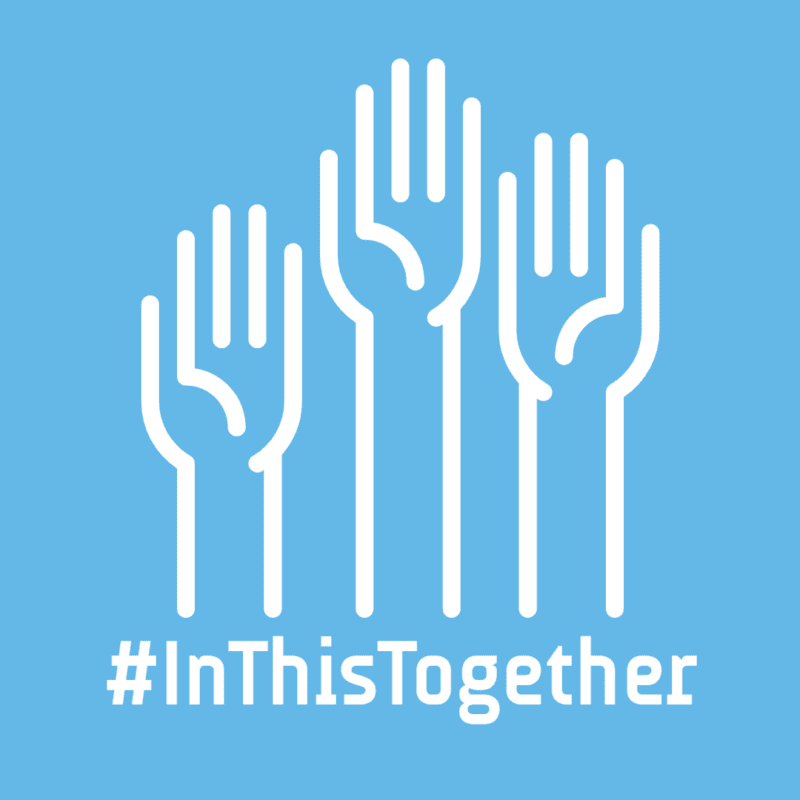Mental health problems are on the rise, and it’s more important than ever to have the tools and knowledge to support those experiencing mental health issues.
That’s why, as part of our #InThisTogether strategy, ATTFE College offers courses perfect for anyone wanting to build their knowledge about mental health.
These courses provide valuable insights into how we can better support individuals experiencing mental health issues. Don’t miss this opportunity to deepen your understanding and make a difference.
To register for these courses, you’ll have to be aged 19 and above and has lived in the EU for at least 3 years at the start of the course.
Once you’re registered to one of these courses, you’ll have access to our Online Learning Portal where you will find your modules and their assessments, which will have their own due dates. There will be no exams.

Available Online Learning Courses
Please click on each course title to reveal more information.
This course is for anyone wanting to raise their awareness of mental health and the problems that can cause mental ill health. It’s useful for anyone looking to develop skills to support their role in the workplace where they may work or interact with individuals with mental-health problems.
You’ll explore some of the most commonly diagnosed mental health conditions including stress, anxiety and depression, phobias and disorders such as bipolar, eating disorders and schizophrenia. You’ll develop an awareness of their signs and symptoms and the ways they may affect peoples day-to-day lives. You’ll also get an insight into how these conditions can be successfully managed.
Mental health problems affect around 1 in 10 children and young people. Emotional wellbeing is just as important as a childs mental health, therefore it is important for those working with children and young people to have a good understanding of the concepts, risk factors, and impact of mental health.
You’ll be able to understand children and young people’s mental health in context, the impact, factors which may affect children and young people’s mental health, existing concerns, and how to support children and young people with these mental health concerns.
Many people find it helpful to seek the support of counselling at some point in their lives. People in any situation could benefit from counselling, those with the correct understanding, knowledge, skills can provide them with support to improve personal well-being.
You will learn about the diversity and ethics in the use of counselling skills, an introduction to counselling skill theories, counselling skills and personal development, and how to use counselling skills.
It’s important that employers are transparent and open about mental health issues, and this qualification builds an understanding of mental health problems and the support available to colleagues. Increasing the understanding of mental health of staff at all levels builds a culture of care and support.
You will get an introduction on mental health and mental ill-health, understand how to support individuals with mental ill-health, and understand what is a mentally healthy environment.
The early years of childhood are critical for development. Learning the significance of attachment and adverse experiences during this time is important to understand childrens mental health. Whether you are looking to begin work with young children, or you work with children in your current role, having a solid grasp on the importance of a childs emotional wellbeing is vital.
You will gain an understanding about mental health for young children in the early years, the significance of attachment and adverse childhood experiences for young children in early years, and the role of early-years practitioners in supporting mental health and wellbeing for young children in their early years.
Mental health presents one of the greatest challenges to our society. While many elements of mental health are still not understood, having a good knowledge of the information that is available is essential in the care sector.
You will gain skills and understanding on how to improve the experiences of service users, the importance of duty of care in adult health and social care, and the role of the mental health worker. Additionally, you’ll learn the correct approach to care and management.
This qualification is designed to increase learners knowledge and understanding of mental health and mental well-being. Successful completion of the required units will allow the learner to develop in-depth knowledge and understanding of mental health. It will also support learner progression into relevant employment within the health and social care sector.
You will learn mental health legislations, services, and public attitudes and how these have evolved. You’ll also gain knowledge on how to support mental well-being through various stages of life, mental ill-health, available treatment options and the potential consequences of mental ill-health, and the skills required to work in a mental health service.
This qualification aims to provide learners with in-depth knowledge of the use of counselling skills in everyday life and work and the approaches that underpin the use of these skills. This qualification is ideal for those seeking to enhance their functional role through the use of counselling skills. Learners will gain an understanding of a range of counselling skills and have the opportunity to examine some of the various schools of thought/theoretical models associated with them.
Unit 1: Developing counselling skills Unit 2: Theoretical approaches in the use of counselling skills Unit 3: Working ethically with counselling skills Unit 4: Counselling skills and diversity Unit 5: Counselling skills and personal development.
If you require more information or would like to register to one of our online courses, please email college.info@attrust.org.uk or call 01623 441310. Kindly quote the course code when enquiring so we can better assist you.









